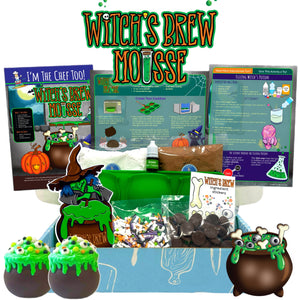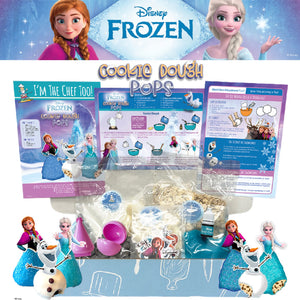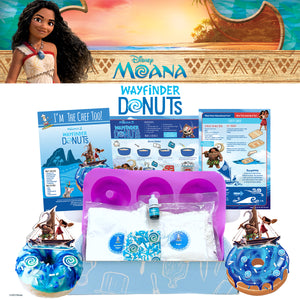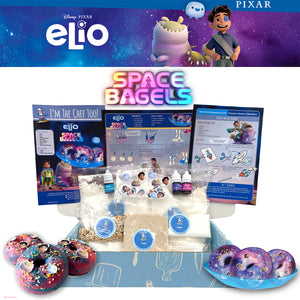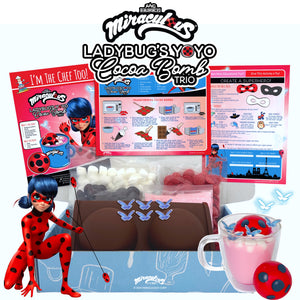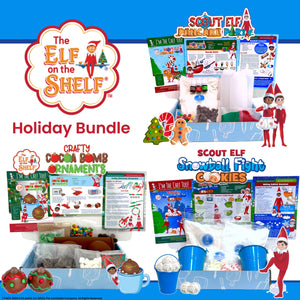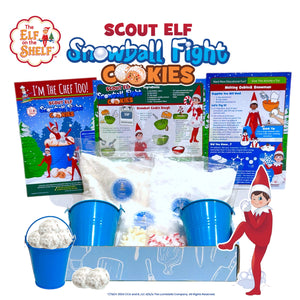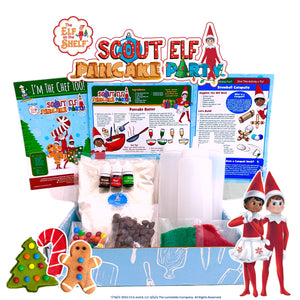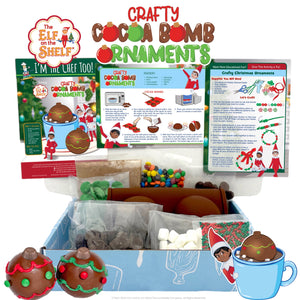7 Awesome Facts About STEM Education

Table of Contents
- Introduction
- Fact 1: The Demand for STEM Careers is Surging, and We Need Our Kids to Be Ready
- Fact 2: STEM Education is for Everyone, Regardless of Future Career Path
- Fact 3: STEM Learning is Incredibly Fun and Engaging When Done Right
- Fact 4: Early Immersion in STEM Sparks Lifelong Interest and Brain Development
- Fact 5: STEM Cultivates Critical Thinking, Creativity, and Problem-Solving Skills
- Fact 6: STEM Drives Innovation and Shapes Our World
- Fact 7: STEM Offers Unique Opportunities and Support for Young Learners
- The I'm the Chef Too! Difference: Blending Fun, Food, and Foundational Learning
- Conclusion
Have you ever watched a child’s eyes light up as they discover something new, or seen their intense focus as they try to figure out how something works? Perhaps they’re building an elaborate block tower, mixing ingredients in a pretend kitchen, or asking endless "why" questions about the world around them. These moments are more than just cute; they are the seeds of curiosity, the very foundation of what we call STEM education. In a world that's constantly evolving, driven by innovation and discovery, understanding the power of STEM isn't just an advantage—it's a necessity. This post will delve into seven truly awesome facts about STEM education, revealing why it’s so vital for our children’s future and how we can foster a love for science, technology, engineering, and mathematics in engaging, joyful ways.
Introduction
Imagine a future where every child feels empowered to build, to question, and to innovate. This isn't a far-off dream; it's the potential unlocked by a strong foundation in STEM. STEM, an acronym for Science, Technology, Engineering, and Mathematics, represents a holistic approach to learning that goes far beyond textbooks and lectures. It's about hands-on exploration, critical thinking, and creative problem-solving. At I'm the Chef Too!, we believe that the kitchen is one of the most exciting laboratories available, blending food, STEM, and the arts into one-of-a-kind "edutainment" experiences. Our mission is to spark curiosity and creativity in children, facilitate family bonding, and provide a screen-free educational alternative that makes learning complex subjects tangible, delicious, and incredibly fun. In the following sections, we'll explore surprising insights into STEM education that highlight its profound impact on individuals and society, and how we can all play a part in nurturing the next generation of innovators.
Fact 1: The Demand for STEM Careers is Surging, and We Need Our Kids to Be Ready
It’s no secret that the world is changing at an unprecedented pace, and with it, the landscape of work. From artificial intelligence to biotechnology, renewable energy to advanced manufacturing, STEM fields are at the forefront of this transformation. This isn't just a trend; it's a fundamental shift, creating a significant and growing demand for professionals with STEM skills. The U.S. Bureau of Labor Statistics projects that employment in STEM occupations will grow much faster than the average for all occupations, with millions of new jobs expected in the coming years.
The reality is, the number of individuals pursuing these critical careers is not keeping pace with the demand. This deficit has far-reaching implications, potentially impacting a nation's ability to innovate, compete globally, and solve pressing societal challenges. Think about it: the doctors, engineers, and computer scientists of tomorrow are the children of today. If we don't inspire them now, we risk a future where essential services and technological advancements are hampered by a lack of skilled professionals.
This isn't just about filling specific job roles; it's about ensuring a workforce capable of adapting to an increasingly complex and technology-driven world. Experts predict that within the next two decades, a staggering 80% of careers will require some level of technical skill. This means that even jobs traditionally not considered "STEM" will increasingly rely on data analysis, digital literacy, and problem-solving abilities rooted in STEM principles. A graphic designer might need to understand user interface engineering, a farmer might use precision agriculture technology, and a musician might leverage digital audio workstations.
So, what does this mean for our children? It means that a STEM-focused education isn't just for the aspiring scientist or engineer; it's a competitive advantage for everyone. By exposing children to STEM concepts early and often, we equip them with the foundational knowledge and critical thinking skills necessary to navigate any career path they choose, making them more adaptable, innovative, and employable in the future.
At I'm the Chef Too!, we see this future and are actively working to prepare children for it. Our unique approach allows kids to explore concepts like chemical reactions when they make Erupting Volcano Cakes or learn about the solar system while decorating Galaxy Donut Kits. These aren't just fun activities; they are deliberate steps towards building foundational STEM literacy in a way that resonates with children's natural curiosity.
Ready for a new adventure every month? Join The Chef's Club and enjoy free shipping on every box, bringing these vital skills right to your doorstep.
Fact 2: STEM Education is for Everyone, Regardless of Future Career Path
There's a common misconception that STEM education is only for those destined to become engineers, doctors, or software developers. This couldn't be further from the truth. While STEM fields certainly offer exciting and high-demand career opportunities, the skills fostered through STEM education are universally beneficial, empowering individuals in any profession or walk of life.
Consider the core tenets of STEM:
- Science: Encourages observation, experimentation, and understanding the natural world.
- Technology: Develops digital literacy, computational thinking, and the ability to use tools effectively.
- Engineering: Fosters problem-solving, design thinking, and practical application of knowledge.
- Mathematics: Builds logical reasoning, analytical skills, and quantitative literacy.
These aren't niche skills; they are foundational competencies that enhance critical thinking, creativity, and adaptability—qualities essential for success in any modern context. Whether a child dreams of becoming an artist, a chef, a teacher, or a business owner, a strong STEM background provides a significant advantage. An artist might use mathematical principles for perspective or design software for digital art. A chef relies on chemistry for cooking processes and engineering for kitchen efficiency. A teacher benefits from understanding educational technology and data analysis.
Furthermore, STEM careers themselves are incredibly diverse. Not all STEM roles require advanced degrees. Many valuable and well-paying positions are accessible with associate's degrees, bachelor's degrees, or even through specialized certifications and on-site training. This accessibility means that a STEM path isn't exclusive to those who pursue lengthy academic journeys; it's open to anyone willing to learn and develop practical skills.
For instance, a child who loves tinkering and building might excel in a career as an electrician, a robotics technician, or a drone operator, all of which are STEM-based and often require vocational training or an associate's degree rather than a four-year university degree. The beauty of STEM is its breadth and its practical application across a vast spectrum of human endeavors.
At I'm the Chef Too!, we design our kits to be approachable for all children, regardless of their perceived "aptitude" for science or math. We believe that every child possesses an innate curiosity that, when nurtured, can blossom into a lifelong love of learning. Our kits are developed by mothers and educators who understand that hands-on, tangible experiences are key to making abstract concepts concrete and enjoyable. We focus on the process of discovery, the joy of creation, and the confidence gained from successfully completing a project, rather than on rigid academic outcomes. This approach ensures that children are building valuable STEM skills without even realizing they're "doing science" or "doing math."
If you're looking to provide your child with a versatile toolkit for their future, consider exploring our full library of adventure kits available for a single purchase in our Main Shop Collection. You'll find something to spark every interest!
Fact 3: STEM Learning is Incredibly Fun and Engaging When Done Right
There's an unfortunate, lingering stereotype that science, technology, engineering, and mathematics are inherently boring, predictable, or overly academic. For many, the word "math" conjures images of endless equations, and "science" might bring to mind dry textbooks. This stereotype couldn't be further from the truth, especially when STEM is approached through hands-on, experiential learning.
The reality is that STEM is about discovery, creativity, and solving real-world puzzles. It's about asking "what if?" and "how does that work?" It's about the thrill of experimentation, the satisfaction of building something new, and the excitement of seeing a concept come to life. When children are given the opportunity to explore STEM through engaging activities, they often find it to be super fun and deeply rewarding.
Think about it:
- Science comes alive when you mix ingredients to create a chemical reaction, like the fizzing of baking soda and vinegar, or when you observe the growth of a plant from a tiny seed.
- Technology becomes exciting when you learn to code a simple game or design a digital drawing, seeing your ideas translate into interactive experiences.
- Engineering is thrilling when you build a bridge out of craft sticks that can hold weight, or design a device to solve a small problem in your home.
- Mathematics becomes tangible when you measure ingredients for a recipe, understand patterns in nature, or use geometry to design a structure.
At I'm the Chef Too!, we are passionate about making STEM truly fun. Our "edutainment" philosophy is built on the premise that learning should be an adventure. We blend the wonder of scientific discovery with the deliciousness of culinary arts, creating a multi-sensory experience that captures children's imaginations. When kids are making Peppa Pig Muddy Puddle Cookie Pies, they're not just baking; they're learning about states of matter, measurement, and the engineering of a stable structure, all while having a blast.
Our kits contain pre-measured dry ingredients and specialty supplies, removing the prep work and making it easy for families to jump straight into the fun. This convenience, combined with our carefully crafted curriculum, ensures that the focus remains on the joy of exploration and the magic of discovery. We've seen firsthand how children, initially hesitant about "science" or "math," become eager participants when the learning is disguised as a delicious cooking adventure.
By making STEM enjoyable and accessible, we not only combat negative stereotypes but also foster a genuine love for learning that extends beyond the kitchen. This positive association with STEM early on can be a powerful catalyst for future academic and career interests.
Give the gift of learning that lasts all year with a 12-month subscription to our STEM cooking adventures! Join The Chef's Club today!
Fact 4: Early Immersion in STEM Sparks Lifelong Interest and Brain Development
One of the most compelling facts about STEM education is the profound impact of early exposure. Research consistently shows that a child's interest in STEM fields begins to solidify—or unfortunately, diminish—at a surprisingly young age. Studies suggest that a significant percentage of children, particularly girls, may lose interest in STEM if they are not actively immersed in these subjects before the 5th grade. This highlights a critical window of opportunity during elementary school years.
Why is this early immersion so crucial? It's not just about introducing concepts; it's about activating neural pathways and nurturing a curious mindset. Firsthand contact with STEM topics at a young age literally activates neurons in a child's brain, influencing how long they remember a certain memory and how deeply they engage with the subject matter. These early positive experiences create a strong foundation, building confidence and a sense of "I can do this!" when it comes to science and math.
Children are naturally curious explorers. They poke, prod, dismantle, and question everything. This innate curiosity is a powerful driver for STEM learning. By providing structured, yet playful, opportunities for exploration, we can channel this natural inclination into meaningful educational experiences. When a child experiments with mixing colors, observes how ingredients change when heated, or designs a simple machine, they are engaging in fundamental STEM practices.
Early STEM education isn't about pushing advanced topics onto young children. Instead, it's about:
- Fostering Inquiry: Encouraging questions and the search for answers.
- Developing Problem-Solving Skills: Presenting challenges and guiding children to find solutions.
- Building Foundational Concepts: Introducing ideas like cause and effect, measurement, patterns, and properties of materials through tangible activities.
- Nurturing Creativity: Allowing children to experiment, innovate, and express their ideas.
At I'm the Chef Too!, we are deeply committed to this principle of early, engaging immersion. Our kits are designed for children as young as 4 years old, offering age-appropriate activities that introduce complex STEM concepts in a fun, accessible way. For example, our kits might explore chemical reactions by making delicious, edible creations, or delve into engineering principles through building edible structures. A parent looking for a screen-free weekend activity for their 7-year-old who loves dinosaurs could try our Fudgy Fossil Dig kit, where they'll "excavate" edible fossils while learning about paleontology and geology. This kind of hands-on, multi-sensory approach ensures that learning is memorable and enjoyable, sparking a sustained interest rather than a fleeting one.
By making STEM a joyful and regular part of family life, we empower children to see themselves as scientists, engineers, and mathematicians, laying the groundwork for a future where they can confidently pursue any path they choose.
Not ready to subscribe? Explore our full library of adventure kits available for a single purchase in our Main Shop Collection and find the perfect starting point for your child's STEM journey!
Fact 5: STEM Cultivates Critical Thinking, Creativity, and Problem-Solving Skills
Beyond specific scientific or mathematical knowledge, one of the most invaluable outcomes of STEM education is the development of crucial 21st-century skills: critical thinking, creativity, and problem-solving. These are not just buzzwords; they are essential aptitudes that enable individuals to adapt, innovate, and thrive in a rapidly changing world.
- Critical Thinking: STEM activities inherently require children to observe, analyze, evaluate information, and form logical conclusions. When a child experiments with different amounts of an ingredient to see how it affects a recipe, or troubleshoots why their edible structure isn't holding up, they are engaging in critical thinking. They learn to question assumptions, identify patterns, and draw evidence-based conclusions. This skill transcends academic subjects and is vital for navigating complex information in daily life, from evaluating news sources to making personal decisions.
- Creativity: Often overlooked in STEM, creativity is actually at its core. Innovation is born from creative thinking—the ability to imagine new solutions, design novel approaches, and think outside the box. Engineering, for example, is fundamentally a creative process of designing and building. In science, creativity is essential for formulating hypotheses and devising experiments. When children are encouraged to experiment with ingredients, design their own edible creations, or find multiple ways to solve a culinary challenge, they are exercising their creative muscles within a STEM context.
-
Problem-Solving: This is arguably the most direct outcome of STEM education. Every scientific inquiry, technological development, engineering project, and mathematical puzzle is, at its heart, a problem to be solved. STEM education teaches children to:
- Identify the problem: What needs to be figured out or fixed?
- Devise a plan: What steps can be taken to find a solution?
- Execute the plan: Put the ideas into action.
- Evaluate the results: Did it work? Why or why not? What can be improved?
- Iterate: Refine the approach and try again.
This iterative problem-solving process, often called the engineering design process, is a powerful framework that applies to virtually any challenge a child will face, from figuring out how to share toys fairly to tackling complex academic assignments.
At I'm the Chef Too!, our hands-on cooking adventures are carefully designed to integrate these skills. When a child is following a recipe, they are engaging in precise measurement (math) and understanding chemical reactions (science). When they're decorating a cake, they're applying design principles (art/engineering). If something doesn't go as planned – maybe the dough is too sticky, or the frosting isn't the right consistency – they are encouraged to troubleshoot, think critically about what went wrong, and creatively find a solution, often with a little guidance from a grown-up. This real-time problem-solving in a low-stakes, delicious environment builds resilience and a growth mindset.
Our unique approach, developed by mothers and educators, ensures that these fundamental skills are woven into every experience, making learning not just effective, but genuinely enjoyable. We're committed to providing a screen-free alternative that sparks curiosity, facilitates family bonding, and empowers children to become confident, capable problem-solvers.
Ready for a new adventure every month? Join The Chef's Club and enjoy free shipping on every box, setting your child on a path to confident problem-solving.
Fact 6: STEM Drives Innovation and Shapes Our World
Take a moment to look around you. The device you're reading this on, the lights illuminating your room, the food in your pantry, the car in your driveway – all of these everyday marvels are direct products of STEM innovation. STEM is not just a collection of academic subjects; it is the engine of progress, constantly pushing the boundaries of what's possible and fundamentally shaping the world we live in.
Consider some of the incredible advancements driven by STEM:
- Communication: From the invention of the telephone to the global reach of the internet and mobile devices, technology has revolutionized how we connect. In 2021 alone, there were already 15 billion mobile devices actively used worldwide.
- Medicine: Scientific research and technological breakthroughs have led to vaccines, life-saving treatments, advanced surgical techniques, and a deeper understanding of human biology. Imagine a world without antibiotics or modern diagnostic tools – it's a testament to continuous scientific inquiry.
- Transportation: The evolution from horse-drawn carriages to electric vehicles and commercial air travel is a story of engineering ingenuity. Electric vehicle sales are projected to reach 6.4 million globally, a massive leap driven by STEM.
- Information Management: The sheer volume of digital data we create daily is staggering – anticipated to rise to 463 exabytes by 2025. This data, and the systems to manage it, are products of computer science and mathematics.
- Sustainability: Scientists and engineers are at the forefront of developing renewable energy sources, sustainable agriculture practices, and innovative ways to recycle and manage waste, like turning plastic bottles into vanilla flavoring using genetically modified bacteria.
These are just a few examples, but they illustrate a powerful truth: STEM professionals are the architects of our future. They are the ones who identify challenges, conduct research, design solutions, and build the technologies that make our lives healthier, more convenient, and more connected. Without continuous investment in STEM education and research, this progress would stagnate.
It's not just about grand inventions; it's about the incremental improvements and daily innovations that make a difference. From the algorithms that power your favorite apps to the materials science behind your non-stick pan, STEM is everywhere. By engaging children in STEM, we're not just teaching them facts; we're inviting them to be part of this incredible journey of discovery and creation. We're showing them that they too can contribute to solving the world's problems, big or small, and leave their mark on the future.
Our mission at I'm the Chef Too! is to make these big ideas accessible and exciting for young minds. When children explore astronomy by creating their own edible solar system with our Galaxy Donut Kit, they're not just learning the names of planets; they're connecting with the vastness of space and the scientific principles that govern it. This kind of tangible, hands-on experience transforms abstract concepts into relatable, awe-inspiring moments.
Fact 7: STEM Offers Unique Opportunities and Support for Young Learners
Beyond the immediate educational benefits and future career prospects, STEM education also opens doors to a wealth of unique opportunities and support systems for young learners who show an interest in these fields. While not every child will pursue a STEM-focused career, those who do often find themselves with access to specialized programs, scholarships, and recognition that can significantly enhance their educational journey and future prospects.
Consider these avenues:
- Scholarship Opportunities: Due to the high demand for STEM professionals, numerous scholarships are specifically designed to encourage and support students pursuing STEM-related areas of study. These can range from general STEM scholarships to those focused on specific disciplines (e.g., engineering, computer science) or demographic groups (e.g., women in STEM, minority students in STEM). Awards like the Gloria Barron Prize for Young Heroes, which recognizes young leaders (ages 8-18) who have made a significant positive impact through scientific or environmental projects, exemplify the kind of recognition available.
-
External Learning Programs: Learning doesn't have to be confined to the classroom. Motivated teens and even younger children can find a plethora of STEM-focused opportunities outside of traditional school settings. These include:
- Summer Camps: Many universities, science museums, and private organizations offer immersive STEM summer camps, allowing children to dive deep into robotics, coding, rocketry, or environmental science.
- After-School Clubs: Robotics clubs, coding clubs, science fair groups, and math teams provide structured environments for collaborative learning and competition.
- Volunteer Programs: Opportunities to volunteer at local science centers, zoos, or environmental organizations can provide practical, hands-on experience.
- Mentorships: Connecting with professionals in STEM fields can offer invaluable guidance and inspiration.
- Competitions and Fairs: Science fairs, math olympiads, and engineering challenges (like robotics competitions) provide platforms for students to showcase their skills, learn from peers, and gain recognition for their innovative projects. These events often come with prizes, scholarship opportunities, and the chance to network with experts.
- Specialized Schools and Programs: A growing number of schools, from elementary to high school, are adopting dedicated STEM curricula, offering advanced coursework, specialized labs, and project-based learning experiences.
These opportunities not only provide additional learning and skill development but also build a sense of community among young STEM enthusiasts. They can connect with like-minded peers, find mentors, and discover their passions in a supportive environment. The recognition and financial aid available can also significantly alleviate the burden of higher education costs, making STEM pathways more accessible.
At I'm the Chef Too!, while we focus on the foundational, fun, and family-oriented aspects of early STEM education, we recognize that our kits can be a springboard for deeper exploration. The curiosity sparked by making Erupting Volcano Cakes might lead a child to research geology or chemistry further. The wonder inspired by creating a Galaxy Donut Kit might ignite a passion for astronomy that leads to joining a school's science club. We believe that by making STEM engaging and accessible at home, we are nurturing the very interests that could lead children to pursue these incredible opportunities.
Our mission is to plant those seeds of curiosity, providing a tangible, hands-on, and delicious way for children to engage with STEM concepts. We want every child to feel that science, technology, engineering, and mathematics are exciting fields full of possibility, not just for a select few, but for anyone with a curious mind and a willingness to explore.
Ready to explore these possibilities with your child? Join The Chef's Club today and receive a new adventure delivered to your door every month with free shipping in the US. It's the perfect way to consistently spark that STEM curiosity!
The I'm the Chef Too! Difference: Blending Fun, Food, and Foundational Learning
At I'm the Chef Too!, we understand that parents and educators are looking for meaningful ways to engage children, foster their development, and provide alternatives to excessive screen time. Our unique approach is rooted in the belief that learning should be an adventure, a multi-sensory experience that combines the magic of discovery with the joy of creating something delicious. We don't just teach STEM; we make it an unforgettable, edible journey.
Our core philosophy revolves around several key pillars:
- Edutainment at Its Best: We seamlessly blend education with entertainment. Each kit is a meticulously crafted experience that teaches complex STEM concepts through tangible, hands-on, and delicious cooking adventures. Children learn about chemical reactions, states of matter, measurement, engineering principles, and more, all while having so much fun they don't even realize they're learning.
- Sparking Curiosity and Creativity: We believe every child is born with an innate sense of wonder. Our kits are designed to fan that spark into a flame, encouraging children to ask questions, experiment, and express their creativity in the kitchen. From decorating their creations to understanding why certain ingredients react the way they do, children are empowered to explore and innovate.
- Facilitating Family Bonding: In our busy lives, finding quality time for family activities can be a challenge. Our kits provide a wonderful opportunity for parents and children to connect, learn together, and create lasting memories in a shared, screen-free environment. Cooking together fosters communication, teamwork, and a sense of accomplishment that strengthens family ties.
- Screen-Free Educational Alternative: In an increasingly digital world, we offer a refreshing break from screens. Our hands-on activities engage children's senses, fine motor skills, and problem-solving abilities in a way that digital content often cannot. It’s about tangible interaction, real-world consequences (and delicious rewards!), and truly being present in the moment of discovery.
- Developed by Mothers and Educators: We understand the needs of children and the concerns of parents because our kits are created by those who know best. Our team of mothers and educators brings a wealth of experience in child development and pedagogical best practices to ensure that every kit is not only fun and safe but also genuinely educational and age-appropriate. We focus on providing practical, valuable advice and setting realistic expectations for what children can achieve and learn. We emphasize the benefits of the process—fostering a love for learning, building confidence, developing key skills, and creating joyful family memories—rather than promising guaranteed academic outcomes.
Whether your child is exploring the science of baking, the engineering of structures, or the mathematics of measurement, our kits transform abstract concepts into delicious realities. For example, our Erupting Volcano Cakes don't just teach about volcanoes; they demonstrate a thrilling chemical reaction that makes the cakes bubble over with deliciousness. Our Galaxy Donut Kit isn't just about decorating; it's an edible journey through astronomy, teaching about planets and the solar system. Even beloved characters can make learning fun, like when kids make Peppa Pig Muddy Puddle Cookie Pies and learn about textures and simple construction.
We provide pre-measured dry ingredients and specialty supplies in every box, making it incredibly convenient for busy families to dive right into the adventure without extensive preparation or trips to the grocery store. This thoughtful design allows you to focus on the joy of learning and creating with your child.
Explore our full library of adventure kits available for a single purchase in our Main Shop Collection and discover the perfect "edutainment" experience for your family.
Conclusion
STEM education is far more than just a collection of subjects; it's a dynamic, engaging, and essential pathway to preparing our children for a future that will be increasingly shaped by innovation and critical thinking. As we've explored, STEM is about sparking curiosity, fostering creativity, and building crucial problem-solving skills that are valuable in every aspect of life, not just in traditional STEM careers. It's about making learning fun, accessible, and deeply engaging from an early age, ensuring that every child has the opportunity to discover their potential and contribute to the world around them.
At I'm the Chef Too!, we are passionate about making these incredible benefits a delicious reality for families everywhere. Our unique blend of food, STEM, and the arts transforms learning into an exciting adventure, providing screen-free fun that encourages family bonding and nurtures a lifelong love of discovery. We believe that by igniting curiosity in the kitchen, we're building the foundation for a future generation of confident, creative, and capable thinkers.
Don't let your child miss out on the incredible journey of STEM exploration. Ready for a new adventure every month? Join The Chef's Club today and enjoy free shipping on every box. Give the gift of learning that lasts all year with a 3, 6, or 12-month subscription to our STEM cooking adventures, delivered right to your door. Your child’s next big discovery is just a box away!
FAQ
Q1: What exactly does STEM stand for?
A1: STEM is an acronym that stands for Science, Technology, Engineering, and Mathematics. It represents an interdisciplinary approach to education that integrates these four distinct but interconnected fields, emphasizing hands-on learning and real-world applications.
Q2: Why is STEM education so important for my child?
A2: STEM education is crucial because it equips children with critical thinking, problem-solving, creativity, and analytical skills that are essential for success in the 21st century. It prepares them for a future job market that increasingly demands technical literacy and innovation, fostering adaptability and a lifelong love of learning, regardless of their chosen career path.
Q3: Is STEM education only for kids who want to be scientists or engineers?
A3: Absolutely not! While STEM education certainly prepares children for careers in science, technology, engineering, and mathematics, the skills it fosters—like logical reasoning, critical thinking, and problem-solving—are universally beneficial. These skills enhance performance in every field, from the arts to business, and help children navigate an increasingly complex world.
Q4: My child isn't naturally "good at" science or math. Can they still benefit from STEM education?
A4: Yes, definitely! Many children develop a misconception that they aren't "good at" STEM subjects due to traditional teaching methods. Hands-on, engaging STEM activities, like those from I'm the Chef Too!, can transform this perception. Our approach makes learning fun and accessible, building confidence and showing children that they are capable of understanding and enjoying STEM concepts through tangible, delicious experiences. It's about fostering curiosity and a growth mindset, not just innate talent.
Q5: How early should I introduce my child to STEM concepts?
A5: The earlier, the better! Research suggests that early immersion in STEM, even before kindergarten, can significantly impact a child's lifelong interest and engagement with these subjects. Simple activities like building with blocks, exploring nature, or cooking together can introduce foundational STEM concepts in an age-appropriate way. I'm the Chef Too! kits are designed for children as young as 4, making early STEM exploration fun and easy.
Q6: How does I'm the Chef Too! make STEM education fun and unique?
A6: I'm the Chef Too! blends food, STEM, and the arts into one-of-a-kind "edutainment" experiences. We use cooking as a hands-on laboratory where children learn about chemical reactions, measurement, engineering, and more, all while creating delicious treats. Our kits are screen-free, designed by mothers and educators, and focus on sparking curiosity, fostering creativity, and facilitating family bonding through tangible, memorable activities.
Q7: What kind of supplies do I need for I'm the Chef Too! kits?
A7: Our kits are designed for convenience! Each I'm the Chef Too! box comes with pre-measured dry ingredients and specialty supplies needed for the culinary STEM adventure. You'll typically only need to provide a few fresh ingredients like eggs, butter, or milk, making it easy to jump straight into the fun without extensive preparation or grocery shopping.
Q8: Can I try an I'm the Chef Too! kit before subscribing?
A8: Absolutely! While we offer convenient monthly subscriptions through The Chef's Club, you can also explore our full library of adventure kits available for a single purchase in our Main Shop Collection. This is a great way to discover which themes and activities your child enjoys most!


